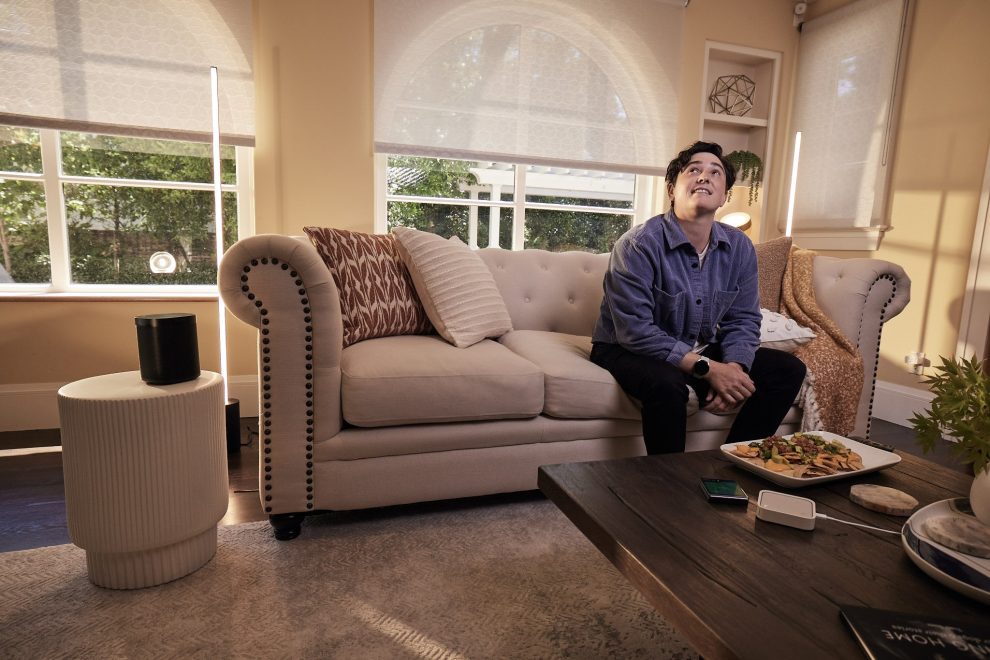Samsung has unveiled a new demand response program for its SmartThings platform, aiming to connect smart homes to the power grid and automatically reduce energy consumption during peak demand periods. The initiative – called Flex Connect – is currently available in New York and California and works in conjunction with SmartThings Energy, the company’s energy management solution.
Flex Connect leverages SmartThings’ AI Energy Mode to automate how connected devices and appliances respond to demand response events. This intelligent system learns household routines and adjusts energy use based on user-defined targets, potentially saving up to 70 percent of energy consumption when using Samsung products.

When a utility company sends a demand response signal, Flex Connect can automatically activate AI Energy Mode to conserve energy in supported appliances, power off devices (including third-party lights and plugs), and adjust compatible thermostats to reduce energy consumption.

The program offers potential financial benefits for participants. Users on time-of-use rates may see reduced energy bills, while others could receive cash rebates from their utility companies for participation. As an added incentive, Samsung is offering Samsung Rewards points through Flex Connect, redeemable for products on Samsung.com.
Flex Connect is designed to be flexible and user-friendly. Participants can choose which devices to enrol in the program and modify their selections at any time. Even without compatible appliances, users can still receive alerts through SmartThings Energy when an event is triggered, allowing them to manually adjust their energy usage.
While Samsung appliances dominate the list of compatible devices, several third-party products are also supported. These include smart plugs, lights, and thermostats from brands such as Wemo, TP-Link, Aeotec, Ecobee, Sengled, and Resideo (Honeywell Home). Tesla products, including Powerwall and Loop EV chargers, are also compatible with the system.
As a member of the Matter smart home standard, Samsung is well-positioned to expand its list of compatible devices. The recent addition of support for large appliances and energy reporting to the Matter standard suggests that more devices may soon be integrated into the platform.
The launch of Flex Connect represents a major step towards creating a more responsive and efficient energy grid. By leveraging the power of smart home technology, Samsung aims to help reduce strain on the power network and potentially prevent blackouts during periods of high demand.
As the program rolls out, it will be interesting to observe its impact on energy consumption patterns and grid stability in participating regions. The success of Flex Connect could pave the way for similar initiatives across the smart home industry, ultimately contributing to a more sustainable and resilient energy infrastructure.
LG has acquired an 80 percent stake in Athom, a Netherlands-based smart home platform company, with plans to purchase the remaining 20 percent within three years.
The acquisition will integrate Athom’s extensive connectivity capabilities, which link thousands of appliances, sensors, and lighting devices, with LG’s generative AI-enabled ThinQ platform. This combination is expected to create an AI home that delivers personalised environments tailored to customer preferences.
“The acquisition of Athom is a cornerstone for our AI home business,” said Jung Ki-hyun, executive vice president and head of LG’s Platform Business Center.
“By leveraging the synergy between the two companies, we will expand our open ecosystem and external integration services, aiming to provide customers with more diverse and multidimensional space experiences.”
Athom, founded in 2014, is known for its smart home hub ‘Homey,’ which has gained a loyal customer base of hundreds of thousands of users, primarily in Europe. The company’s flagship product, Homey Pro, can connect to more than 50,000 devices and supports various connection methods, including Wi-Fi, Bluetooth, Z-Wave, Matter, and Thread.
The Homey App Store offers around 1,000 applications for connecting and controlling home devices from various brands. Many of these applications are based on official partnerships, while others are developed by the active Homey community.
LG plans to leverage this acquisition to incorporate third-party devices and services into its ecosystem, providing deeper insights into customer usage patterns and accelerating the delivery of personalised services. Despite the acquisition, Athom will continue to operate independently—maintaining its business operations and branding.
This move aligns with LG’s broader strategy of transitioning from a hardware-focused to a software-based platform business. The company aims to establish continuous relationships with customers through devices connected to the AI home, transforming into a ‘Smart Life Solution Company’ that provides differentiated value.
William Cho, CEO of LG Electronics, commented: “LG is evolving into an intelligent space solutions company that connects and expands experiences in various living spaces.
“We will continue to make strategic investments to shift our business paradigm, as evidenced by our successive entries into platform-based appliance services and solutions such as the webOS advertising platform and AI home.”
The global smart home market is projected to grow from $81.2 billion in 2023 to $260.24 billion by 2028, with an average annual growth rate of 26.23 percent, according to market research firm TechNavio.
Source: IOT News




















Add Comment